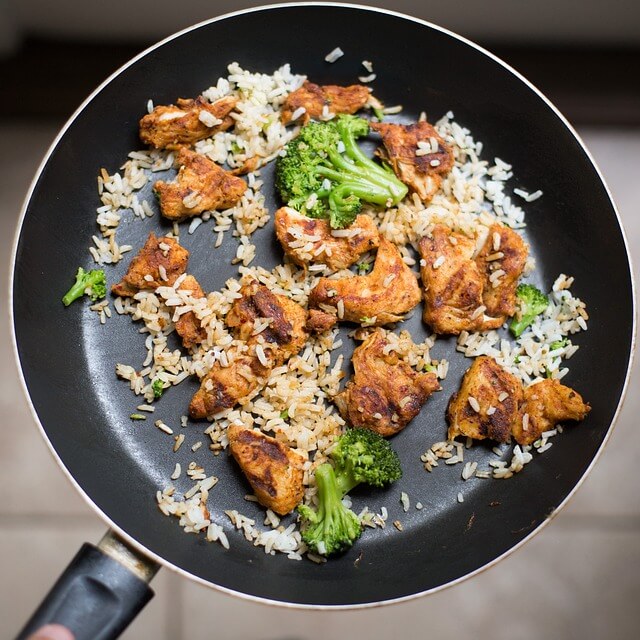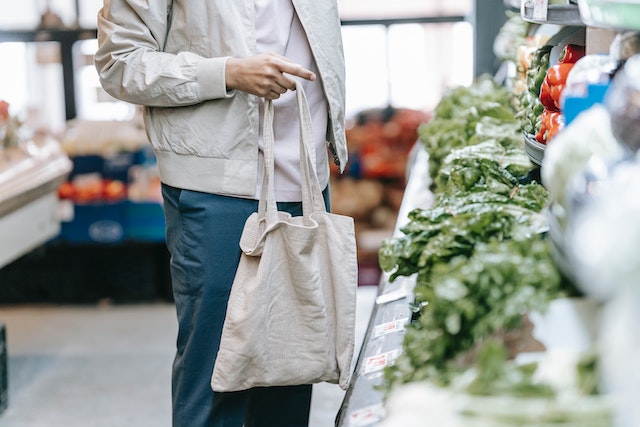
Meal planning and budgeting go hand in hand. The importance of cheap groceries is important.
As I sit at my kitchen table, my mind races with thoughts of meal planning, budgeting and grocery shopping. In today’s world, it’s more essential than ever to stretch our hard-earned dollars as far as possible. And the key to achieving this is to keep our grocery costs to a minimum.
Becoming a smart shopper
But how can we achieve this goal? It’s easy to be overwhelmed by the flashy packaging and seductive displays at the grocery store, but we should aim to be smart shoppers. In fact, while technology can help innovate in sustainability and reduce costs, it seems like its more profitable for these big corporate grocery stores to use technology to make us spend more money. We need to look beyond the packaging and slogans, and make practical choices that don’t compromise quality.
Prepare a grocery list
One of the essential tools for shopping on a budget and meal planning is to prepare a grocery list before heading to the store. This list should take into account what we already have and what we’ll need for the meals we’ve planned. We should also take advantage of coupons, sales, and discounts to maximize our savings. You practically need to hack your grocery shopping.
Tips for creating a grocery list
1. Plan your meals for the week in advance so you know exactly what ingredients you need to buy.
2. Take inventory of what you already have in your pantry and freezer to avoid buying unnecessary items.
3. Look for sales and specials on items on your grocery list to maximize savings.

4. Purchase store-brand items rather than name-brand to save money without sacrificing quality.
5. Buy fresh produce and meats that are in season for the best prices and quality.
6. Avoid buying pre-packaged convenience foods, as they tend to be more expensive and less healthy.
7. Use coupons and cashback apps to get discounts on items you would already be buying.
8. Consider buying frozen fruits and vegetables for a convenient and budget-friendly option that still provides nutrition.
9. Keep a running list of meal ideas and the ingredients needed so you can plan ahead and stay within your budget.
10. Stick to your list and avoid impulse buys to prevent overspending.
Buy seasonal produce
Another effective tip for budgeting and grocery shopping is to take into account seasonal produce. Shopping for seasonal produce can help you save money in a few ways. When a fruit or vegetable is in season, there’s an abundance of it, and that means prices are lower. They are fresher, tastes better, and have a better nutritional profile. When you buy seasonal produce, you’re not only eating healthier, but you’re also getting the best value for your money.
By planning your meals around the seasonal fruits and vegetables that are available, you can save money on your grocery bill without sacrificing quality. You’ll also be supporting local farmers and reducing your carbon footprint, making it a win-win situation for your wallet and your health.
Avoid impulse shopping
We need to avoid impulse purchases as well. Studies show that over 60% of purchases at the grocery store and supermarkets are unplanned, and this can add up over time. We should aim to stick to our lists and not be tempted by shiny new products.
Here are a few tips on how to avoid impulse purchases:
1. Stick to your grocery list: When you go shopping, make a list of everything you need and stick to it. Don’t get sidetracked by sale items or flashy displays.
2. Don’t shop hungry: When you’re hungry, you’re more likely to make impulse purchases. Eat a snack or meal before going to the grocery store to curb your hunger.
3. Use cash: Use cash instead of a credit card to pay for your groceries. When you see the money leaving your wallet, you’re more likely to think twice about unnecessary purchases.
4. Don’t shop with kids: If possible, leave your kids at home when you go grocery shopping. Kids can be easily swayed by treats and toys, which can lead to unnecessary purchases.
5. Avoid the end caps: The end caps of grocery store aisles often have sales and promotions, which can be tempting. Try to avoid these areas unless you have an item on your list that’s on sale.

Save with leftovers
Leftovers are also a big part of saving money when it comes to keeping a lean budget. They’re also a great way to save money and avoid food waste.
One of the easiest ways to save money is to cook more than you need for one meal and then eat the leftovers for lunch or dinner the next day. This not only saves money but also saves you time and energy as you don’t have to cook every meal from scratch.
To maximize leftovers, cook in larger quantities so you’ll have more to work with. For instance, if you’re making a soup or stew, adding extra vegetables or broth can stretch the recipe and make it last for several meals. ‘
Another tip is to repurpose leftovers into new dishes. For instance, leftover grilled chicken can be chopped and added to a salad or heated up with some vegetables for a quick stir-fry. Leftover rice can be used to make fried rice or added to soup as a thickener.
By being creative and using our leftovers in novel ways, we can avoid food waste and save money at the same time. So, next time we’re in the kitchen, let’s think twice before throwing anything away and be mindful of how we can make the most of our groceries.

Buy items in bulk
Consider buying items in bulk to stay ion top of your budgeting and grocery shopping. Buying a large amount of a particular item, for example, rice or pasta, is usually much cheaper than buying smaller quantities. It’s also great to have a pantry stocked with essentials, so we’re never caught off guard when mealtime comes around.
Bulk-buying tips
Here are some practical tips to help you make the most of buying in bulk:
1. Take inventory of your pantry and make a list of items that you use frequently. These can include items like rice, pasta, canned goods, and dried beans.
2. Check the unit price of the item to make sure that buying in bulk is actually a better deal. Sometimes, smaller packages may actually be cheaper.

3. Look for sales and discounts on bulk items. Many stores offer discounts for buying in bulk or have periodic sales that can help you save even more.
4. Store items properly to ensure that they last as long as possible. This can include storing items in airtight containers, keeping them in a cool, dry place, and using them before their expiration date.
5. Use bulk items in multiple meals or recipes to help prevent food waste. For instance, a large bag of rice can be used for rice pilaf, stir fry, and rice pudding.
By being mindful of what you buy in bulk and how you use it, you can save money and reduce waste at the same time.
Budgeting and grocery shopping go hand in hand. By adopting practical habits and sticking to our plan, we can avoid overspending and make the most of our hard-earned dollars. It takes effort, but the rewards are worth it.
